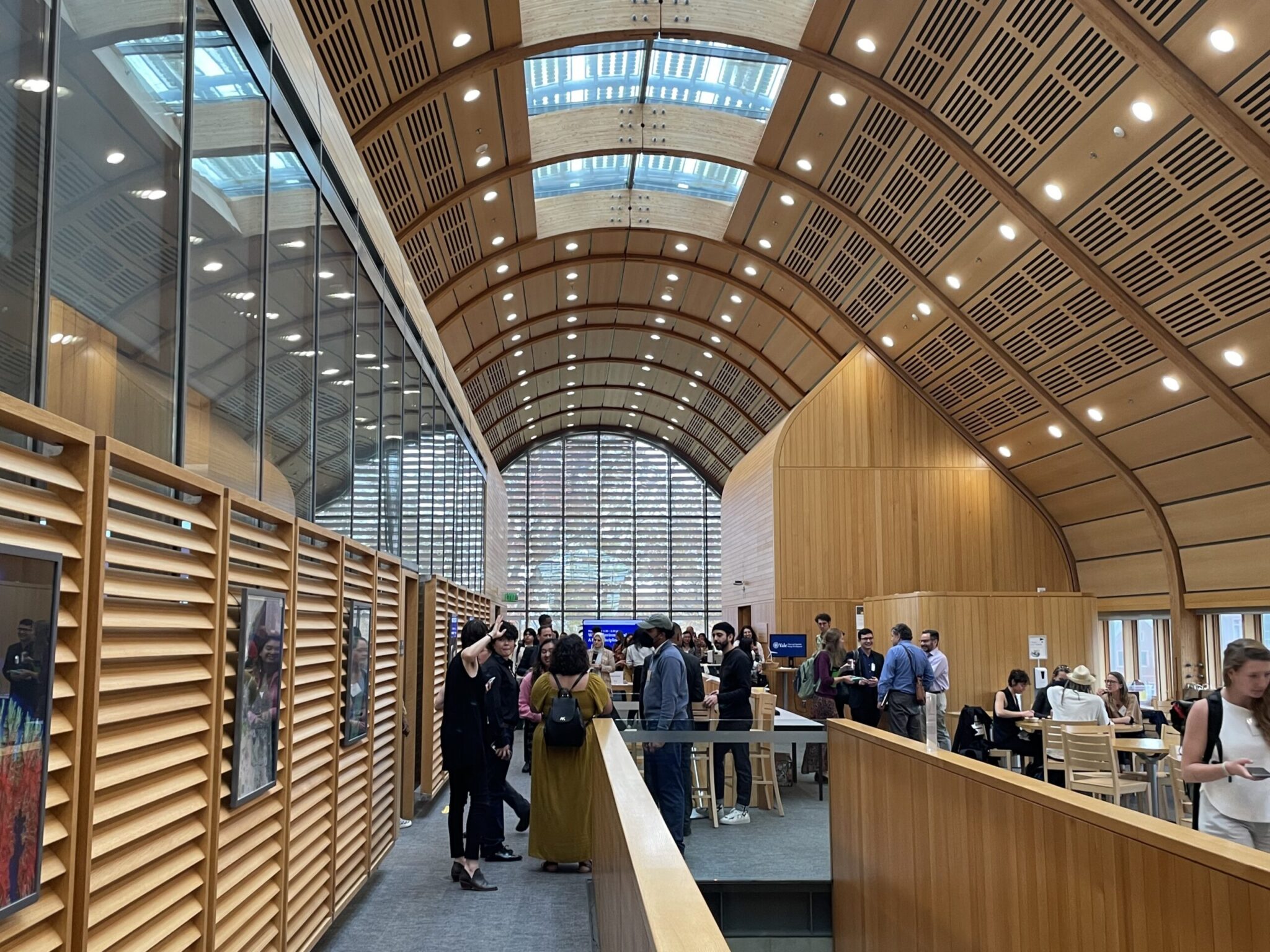‘Environmental Joy’ conference takes on climate change with a smile
Organized by the Yale Center for Environmental Justice, climate leaders and researchers worked to approach global warming with joy and hope at the fifth annual iteration of the conference.

Hanwen Zhang, Contributing Photographer
Saving the planet is not an easy task. Climate activism, as a profession that grapples with the uncertainty of increasing wildfires and hurricane disasters, is often rife with stress and anxiety.
The Yale Center for Environmental Justice’s “Environmental Joy” conference seeks to change that. The center’s fifth annual environmental justice conference at the School of the Environment last week carved out space for joy, convening activists and experts to reflect on the power of happiness to lead sustainable action. The two-day event foregrounded the importance of community, resilience and self-care in confronting the inequities of global warming.
“When it comes to fighting climate change, the feelings of joy and the feelings of resilience, and the feelings of solution are far more important than hard data and pessimistic projections,” Michel Gelobter, executive director of the Yale Center for Environmental Justice, told the News.
The conference involved panel discussions followed by a series of theme-organized tracks — smaller breakout presentations organized around “policy,” “economics,” “governance,” “evaluation” and “geography” — that attendees could visit as they wished. Event speakers ranged from Yale environment professors to Indigenous musicians, who spoke about the trials and triumphs of finding continued purpose in their work. Attendees at Friday’s conference session were also given priority access to see a live recording of professor Laurie Santos’ “Happiness Lab” at the Schwarzman Center.
Nicholas Hernandez-Aguilera, panelist and School of the Environment professor, shared his experience incorporating fun to increase community engagement with his research. He explained that in his field work, which focuses on land-use practices among small farms in the global south, researchers can often struggle to connect with the rural farming communities from which they collect data.
By soliciting feedback through an interactive game that offered raffle prizes, however, his lab was able to increase participation of local farmers. iKON — a game that prompted respondents to recall past climate events as best they could — empowered local residents to open up and share their experiences with a level of detail that satellite data alone could not have provided. According to Hernandez-Aguilera, the project garnered 40,000 comparisons in just three days.
Michael Mendez, an environmental policy professor at the University of California, Irvine, who has worked to reform the working conditions of migrant workers in California wineries, brought attention to the importance of community in climate activism. He described ongoing organizational efforts among local migrant workers even as the Sonoma County board recently repealed the Agricultural Access Verification Card Program — a resolution that had prevented employers from sending workers to harvest grapes in dangerous wildfire evacuation zones.
Sebastian Block Munguia, an attendee and postdoctoral researcher, acknowledged that dealing with the realities of environmental work can be often difficult and “depressing.” However, he added that “finding a community” and “having a hope for creating a better future” are “important way[s] of maintaining energy and inspiration.”
While joy is crucial to community-building, the speakers cautioned against its potential for abuse. Hernandez-Aguilera clarified that positivity should not overlook the “pain” of environmental injustice. Joy that focuses too much on individualistic behavior, Mendez explained, can also lead its principles to be “co-opted” by greenwashing campaigns. Mendez singled out fossil fuel advertising efforts, many of which have promoted feel-good positivity to cover up ongoing environmental destruction.
For Bennett Olupo ENV ’24, the conference was an opportunity to appreciate the diversity of perspectives and approaches to environmental work.
“[The conference] is just very grounded in real-world examples that you don’t often hear about at Yale,” Olupo told the News. “This is tangible, and you can tell that people lived it and experienced it.”
Individual track panels such as “Climate, Culture, Place, and Joy in the Caribbean” also spotlighted the power of governmental and intergenerational collaboration. Liz Riley, executive director of the Caribbean Disaster Emergency Management Agency, explained how Caribbean communities banded together in the wake of hurricanes. David Farrell, principal of the Caribbean Institute for Meteorology and Hydrology also shared the joy of empowering 20-year-olds to develop new climate models and VR-technology.
The conference’s focus on joy had not initially been part of the plan, according to Gelobter. But after speaking with the presenters and discovering how “central” joy was to their work, the center shifted the event’s emphasis to explore ways in which the lessons of happiness and community could change practice.
“I think young people bring a great sense of joy for me to work,” said Farrell during his presentation.
The Yale Center for Environmental Justice is a joint undertaking by the School of the Environment and Yale Law School.







